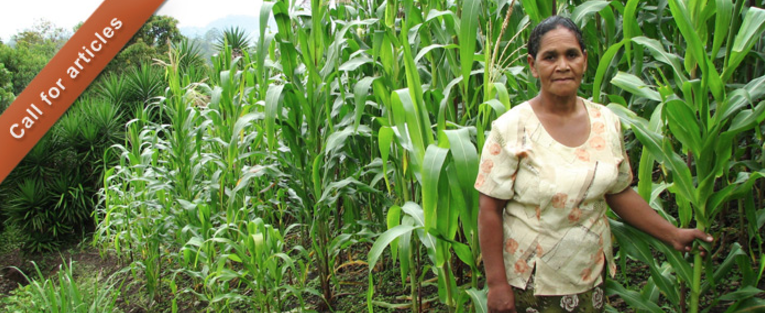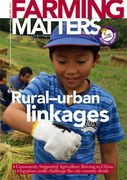Deadline: 1 September 2015.
Women are strong drivers of agroecological change in farming and consumer communities. One example is the women’s movement for agrobiodiverse, pesticide-free crop production in India. In other places, women experiment with intercropping, vegetable box schemes and seed exchanges. What motivates them? And what role does agroecology play in improving the lives of women?
There are 500 million small scale farm families around the world, and 70% of the agricultural work on these farms is done by women. According to FAO, women could increase their productivity by up to 30% if they had the same access as men to productive resources. Closing the gender gap, as was called for by so many during the 2014 International Year of Family Farming, could reduce the number of the world’s undernourished people by 12-17% (www.fao.org/sofa/gender/home).
We have long known that women hold important agriculture and food knowledge, and that they are a force pushing for agroecological changes that lead to resilient farming. Where men tend to focus more on economic gains, women’s ultimate concerns tend to food sovereignty and nutrition, social stability and peace, and the conservation of biodiversity and natural resources.
We want to have a closer look at what motivates women to inspire progress in farming. How do agroecological practices impact their workload, family nutrition and their quality of life? And what role do women and their organisations play in building a better future for their families and themselves?
We invite you to share your experiences, looking especially for practical stories of women as farmers, farm workers, cooks, mothers, educators, and community representatives, of women in policy, women in positions of power, women as role models, or stories of those working directly with these women.
Articles for the December 2015 issue of Farming Matters should be sent to the editors before 1 September 2015. E-mail: info@farmingmatters.org


